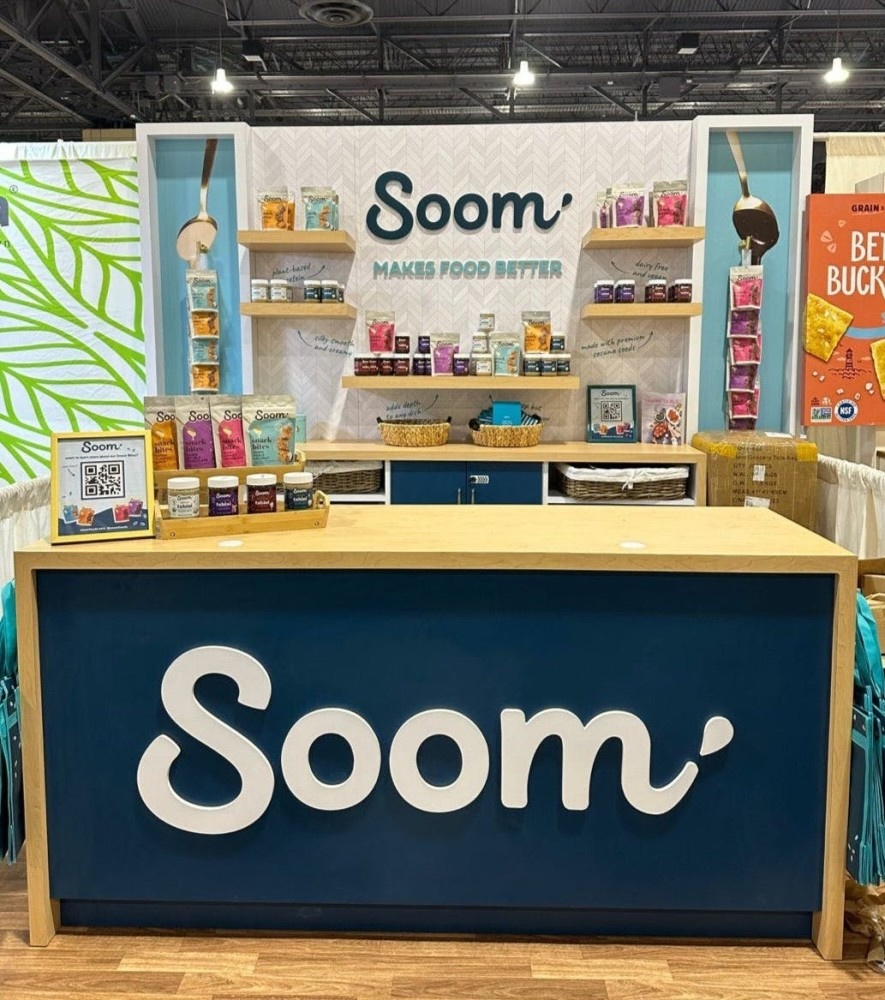DTC? B2B? Retail? Soom Foods has made its choice.
On this episode of Founding Philly, I interview Amy Zitelman, CEO and cofounder of the sister-owned company behind a line of tahini products.
Tahini, known for its silky-smooth texture, is made from sesame seeds and is a versatile ingredient in both Middle Eastern and Mediterranean cuisines, enhancing both savory and sweet dishes. Soom Foods’ high-quality tahini has established itself as a staple in professional kitchens and home pantries. The products are available in numerous retail locations, including Whole Foods, Thrive Market and, as of this year, over 1,300 Publix stores.
This summer marks a significant milestone for Amy, her sisters and the Soom team as they celebrate 10 years of Soom’s journey.
The Philadelphia-headquartered company found its early success in the food service industry, forming partnerships with restaurants and chefs, and delivering tahini in bulk. Starting in the new year, Soom will no longer sell its products to consumers through its website.
Amy explained the strategic advantage of this B2B approach:
“The beauty about restaurants or B2B is they buy more of it and they buy it more often,” she said. “They buy a 40-pound bucket of tahini as opposed to a six- or an 11-ounce jar of tahini, and they buy that 40-pound bucket every week as opposed to once a year.”
Amy also recounted knocking on doors to persuade chefs to try her tahini, sometimes leading to her being invited into their kitchens — a fun way to grow the business early on.
Amy’s favorite simple pleasure with tahini? “Simply drizzling tahini on Greek yogurt with honey and sliced bananas — it’s just perfect.”
Listen as Amy shares her journey of cofounding and leading Soom Foods over the past decade, the lessons learned in developing a leading food brand, and her commitment to bringing high-quality, versatile tahini to kitchens everywhere.
Before you go...
Please consider supporting Technical.ly to keep our independent journalism strong. Unlike most business-focused media outlets, we don’t have a paywall. Instead, we count on your personal and organizational support.
Join our growing Slack community
Join 5,000 tech professionals and entrepreneurs in our community Slack today!

The person charged in the UnitedHealthcare CEO shooting had a ton of tech connections

From rejection to innovation: How I built a tool to beat AI hiring algorithms at their own game

Where are the country’s most vibrant tech and startup communities?






